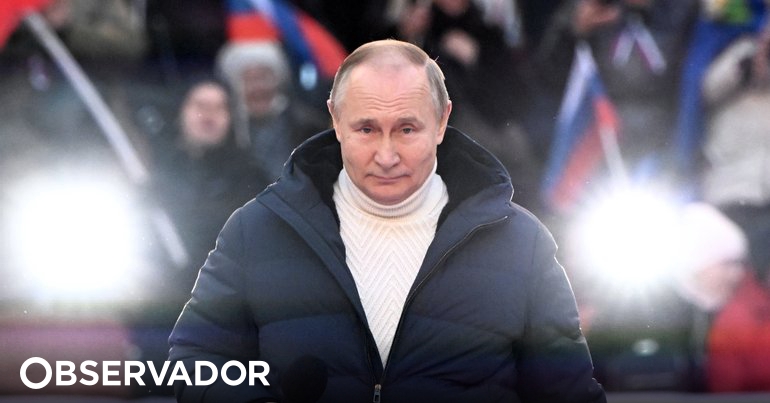You have free access to all observer articles for being our subscriber.
If the list of companies leaving Russia is growing day by day – Yale University It updates the information every hour and it is already in 47 Excel pages In the names of companies that have left the country or stopped their activity – there are companies that choose to stay in the country or claim that they are prohibited from leaving.
The invasion of Ukraine put pressure on companies operating in Russia to make a public decision on whether to continue in that country. Some, like burger king, publicly expressed their condemnation of Russia for the invasion, and even said that they had asked Russian partners to close operations. But since, they say, they are bound by complex franchise agreements, the final decision rests with the Russian partners.
From energy to cars and social networks. Big companies cut (or reduce) ties with Russia
Americans DunkinDonuts, Papa John’s and the yum brands Among the food chains that have suspended (in theory, at least) their support for units in Russia. But these units are managed by franchises, which are companies that pay the parent company for the right to do business on their behalf and sell their products. And Russian franchises decided to keep many stores operating at full capacity (for example, Dunkin Donuts has 20 stores in the country, all of which are licensed – and they all remain open).
The burger kingowned by Restaurant Brands International (RBI), claims the operator of its 800 stores in Russia “refused” to close, despite pressure to close business in the country — and after competitors like MacDonald’s and KFC gave up. As explained by the Guardianthe brand was not able to close the entire operation due to complex contracts with its main partner, Alexander Kolobov, with whom it entered into joint project.
“We have contacted the company’s main operator and requested that it suspend operations of Burger King in Russia,” RBI President David Sher said in a statement. But Kolobov “refused to do this.” “Do we want to immediately suspend all Burger King operations in Russia? Yes. Can we force a suspension of operations today? No.” The RBI argues that the contract does not complete the clauses that allow it to unilaterally separate.
“No serious investor, in any industry in the world, would agree to a long-term business relationship with flimsy termination terms. That is exactly why we say it is a complex legal process.” RBI is trying to sell its 15% stake in Russia. According to David Sher, the profits of the business in the country will be allocated to the United Nations High Commissioner for Refugees (UNHCR).
Adherence to narrow franchise agreements is also used by Marks and Spencer (48 open stores) and hotel groups Marriott (28 hotels) and Accor (57) Justification for staying in the country.
However, brands are trying to tinker with what they can. There are companies that have paused future investments (and therefore do not change existing investments). The Marriott Hotel Group has announced that it will suspend the opening of new hotels and all future investments in Russia. a Hilton, a Life it’s the InterContinental Hotels Group (IHG) has made similar decisions.
Marriott, Hilton and IHG will also close their offices in Moscow – and IHG will keep workers from working remotely or traveling abroad; Hilton confirmed that she will continue to pay salaries, According to the Washington Post,.
Other companies invoke humanitarian concerns, such as pharmaceuticals Abbott Laboratories, AbbVie, Amerisource Bergen, AstraZeneca, GlaxoSmithKline, Johnson & Johnson, Merck and Pfizer, who have kept medicines and other “essential” products flowing, demanding humanitarian obligations. Raw material brokers Bunge and Cargill (which also operate in Portugal) claim that suspending operations in Russia would damage global supply chains for key products such as wheat, corn and nickel.
For example, North America KargilWhich is devoted to the purchase and distribution of grain and others goods The agriculture sector announced, at the end of last week, that it will continue to operate its factories dedicated to basic commodities, but it will reduce business and stop investment. The argument is that food is a fundamental right and, therefore, “should not be used as a weapon.”
“This region plays an important role in our global food system and is an important source of key components of essential nutrients,” he adds. Bunge has also announced that it will suspend its business in Russia, but will keep the oilseed unit in the country, which will continue to serve the domestic market.
Fortune notes that other brands Such as Carlsberg, Danone, General Mills, Kellogg, Kraft Heinz, Mars, Mondelez, Nestlé And the Pepsi They are also reluctant to cut ties entirely, keeping goods they deem necessary, such as baby products, diapers, and chocolates. But the magazine notes: “While Oreo cookies, Cadbury yogurt, and Danon cheesecake may be sacred household items for many of us, they’re not a life’s necessities.”
companies that provide oil drilling services, Halliburton and Schlumberger, despite US sanctions. As well as technology Citrix And the Cloudfarewhich claims the existence of humanitarian obligations, and advertising agencies Interpublic . groupAnd the Publicis, Dentsu, WPP and Leo Brunet.
Yale University – led by Professor Jeffrey Sonnenfeld and his research team – also has a menu, updated hourly, with announcements of departing or resident companies. Among those that remained Auchanwith revenues of $3.5 billion, decathlon (It has at least 50 stores and revenue of $300 million), the Leroy Merlin (4 billion USD in revenue) and Oriflame cosmetics (16% of revenue comes from Russia).
There are also companies that have not yet commented on a possible exit: according to Yale University, they are Asus, Emirates, Greif, Halliburton, LG Electronics And the tran techniques. Already maintain operation AirProducts, Baker Hughes, EmersonElectric, Glencore, Gruma, Internationalpaper, IPGPhotonics, Koch Industries, Metro, Nalco, Natura andCompany, Schlumberger, WeatherfordInternational and the Young Living.

“Wannabe internet buff. Future teen idol. Hardcore zombie guru. Gamer. Avid creator. Entrepreneur. Bacon ninja.”

